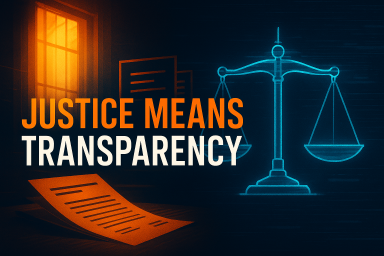UNLAWFULCONVICTIONS.ORG


The Public Defender's Office worked against Mr. Anderson
Between March 3rd (bond hearing) and April 10th (plea date), Mr. Edwin Anderson was represented by the Public Defender’s Office. During this critical time period, Mr. Anderson's constitutional rights were violated through neglect, suppression of filings, and complete inaction.
Failure to Advocate at First Appearance:
At Mr. Anderson’s bond hearing, the public defender refused to stand and speak on his behalf. The court was never told that:
Mr. Anderson had been law-abiding for over 22 years
He was a mentor to others in his community
He was actively enrolled in college studying logistics
Instead, the attorney told Mr. Anderson to “sit down and be quiet,” and allowed the hearing to move forward with no meaningful representation.
Failure to Investigate the Case:
Over the course of more than a month, the Public Defender’s Office:
Did not file a discovery request
Did not request body cam footage
Did not examine or challenge the inconsistencies in the police report
These are fundamental legal duties required of any competent defense attorney.
Suppression of Defendant's Constitutional Motions:
Mr. Anderson, realizing his defense was being neglected, submitted:
A Faretta motion to represent himself
A motion to compel discovery
A motion to remove the Public Defender from his case
These motions were never submitted to the court or heard. Mr. Anderson’s constitutional right to self-representation was blocked.
Plea Entered Without Evidence:
On April 10th, Mr. Anderson entered a guilty plea. However, his attorney:
Never reviewed the evidence
Never filed discovery
Never examined body cam footage
The Legal Standards That Apply
Under both U.S. Supreme Court and Florida Supreme Court rulings, what happened in Mr. Anderson’s case is unconstitutional:
Strickland v. Washington, 466 U.S. 668 (1984):
A conviction must be reversed if defense counsel’s performance was:
Deficient, meaning they failed to act reasonably; and
Prejudicial, meaning the outcome would likely have been different with competent representation.
In this case, no discovery was filed, no evidence reviewed, and Mr. Anderson’s constitutional rights were ignored. This meets both prongs of Strickland.
Faretta v. California, 422 U.S. 806 (1975):
A defendant has a constitutional right to represent themselves. Florida courts are required to consider Faretta motions seriously and promptly. Mr. Anderson’s motion was suppressed entirely.
Florida Standard:
Florida courts have ruled that failure to investigate or review discovery before a plea is ineffective assistance of counsel. An attorney cannot provide meaningful advice when they have not reviewed the evidence, and a plea under these conditions is not knowingly or voluntarily made.

Mr. Anderson has been seperated from his 6 year old son twice based off this unlawful sentence .This happens everyday in the legal system
Why the Conviction Is Unlawful
Mr. Anderson’s conviction is unlawful because:
His attorney failed to advocate or investigate.
His right to self-representation was denied.
He entered a guilty plea with no knowledge of the evidence against him.
The lawyer never filed for discovery or body cam footage—not even the basics.
Under Strickland and Faretta, this case fails constitutional standards. Under Florida law, no conviction can stand under these conditions.
How the public defenders actions contributed to this unlawfulconviction in word part 1
From arrest to plea ..
June 18th 2024 to June 18th 2025

We need your consent to load the translations
We use a third-party service to translate the website content that may collect data about your activity. Please review the details in the privacy policy and accept the service to view the translations.
